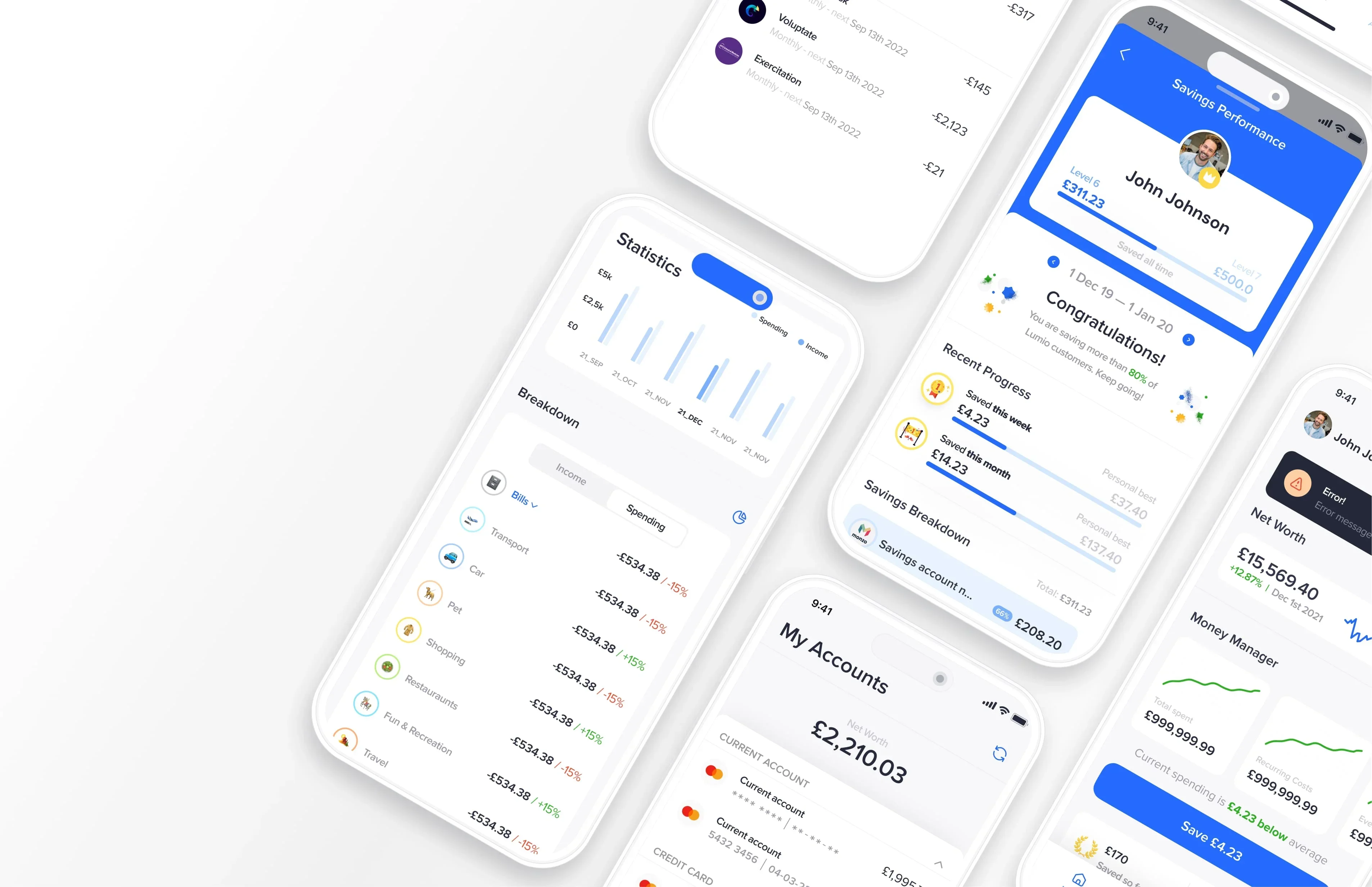Nowadays, sustainability is a corporate necessity rather than just a trendy term. Entrepreneurs have a rare chance to match revenue with environmentally friendly operations as environmental issues gain prominence. Here are 15 creative sustainable business ideas to help you on your path to environmentally responsible entrepreneurship, whether you're starting a new company or making changes to an existing one.
Sustainability is no longer optional—it's a vital driver of innovation and profitability. In 2025, over 81% of global consumers say they expect companies to help improve the environment (IBM & NRF). For aspiring entrepreneurs, this presents a massive opportunity to launch businesses that make a real difference.
Here are 15 sustainable startup ideas, backed by industry stats and trends, to help you build a purpose-driven brand.
Table 1: Sustainable Industry Market Overview (2025–2030 Forecasts)

The green business sector is witnessing robust growth across various domains. Eco-friendly packaging is projected to rise from $300 billion in 2025 to $413.8 billion by 2030, growing at a CAGR of 5.7%. Ethical fashion is set to expand from $9 billion to $15 billion with a 7.1% CAGR. Renewable energy continues to dominate, increasing from $1.2 trillion to $1.99 trillion at 8.4% CAGR. Urban farming shows the highest growth at 12.3%, rising from $115 billion to $281.2 billion. Green cleaning products and ecotourism are also surging, with the latter growing rapidly at 15%, from $210 billion to $400 billion by 2030.
1. Eco-Friendly Packaging Solutions
As global e-commerce sales are projected to skyrocket to $6.9 trillion by 2025, the demand for sustainable, planet-friendly packaging is growing in tandem. Traditional plastic and non-biodegradable materials are facing bans and consumer backlash, making room for innovative alternatives.
Business Idea: Launch a packaging company that specializes in biodegradable, compostable, or reusable packaging options. Materials such as cornstarch, sugarcane bagasse, seaweed, or mushroom-based mycelium offer eco-conscious alternatives to plastics and styrofoam. These can be molded into mailer bags, food containers, or wrapping materials for online retailers, restaurants, and logistics providers.
Stat: According to the Trivium Packaging Report, 70% of consumers are willing to pay more for sustainable packaging—underscoring the market potential and consumer readiness for greener alternatives.
2. Sustainable Fashion Line
With increasing awareness around climate change and unethical labor practices, consumers—especially younger generations—are shifting toward conscious consumption. In fact, 65% of Gen Z shoppers prefer eco-conscious brands, actively seeking out sustainability and transparency in fashion.
Business Idea: Build a fashion label that emphasizes sustainability at every stage—from sourcing organic cotton, bamboo, or hemp fabrics, to using recycled textiles, natural dyes, and zero-waste production methods. Ethical labor practices and minimalistic packaging will add to the brand's appeal. Position your brand as a slow fashion alternative to mass-produced fast fashion, and use storytelling and certifications (like GOTS or Fair Trade) to build consumer trust and loyalty.
Table 2: Preferred Clothing Attributes by Consumers (Statista Survey 2024)

Consumer preferences are increasingly leaning toward ethical and environmentally conscious products. A significant 65% of shoppers prioritize sustainable or eco-friendly attributes when making purchasing decisions. Additionally, 54% prefer locally made goods, supporting community-based production and reducing carbon footprints. Ethical considerations are also key, with 49% of consumers valuing ethically sourced labor, reflecting a growing demand for fair treatment of workers. Furthermore, 41% seek products made from organic materials, indicating a strong interest in health-conscious and environmentally safe options. These trends highlight the importance of sustainability, transparency, and ethical practices in capturing modern consumer loyalty.
3. Renewable Energy Consultancy
With governments and individuals striving to reduce carbon footprints, the demand for renewable energy solutions is accelerating. Solar energy, in particular, has seen a massive uptick, with installations growing by 43% in 2024 alone according to the International Energy Agency (IEA).
Business Idea: Start a renewable energy consultancy that assists homeowners, small businesses, and communities in transitioning to clean energy sources. Offer services such as site assessments, energy audits, system design, vendor coordination, and installation oversight for solar panels, wind turbines, or geothermal systems. Educate clients on available government incentives and long-term savings. This business not only contributes to sustainability but also taps into a booming sector with long-term relevance.
4. Urban Farming Initiatives
As urban populations swell, so does the need for locally grown, fresh produce. Urban farming helps reduce the carbon emissions associated with food transportation while boosting food security in cities.
Business Idea: Establish vertical farms, hydroponic systems, or rooftop gardens in metropolitan areas. These systems use less land and water, and they can be operated year-round. You can supply organic vegetables, herbs, and microgreens directly to restaurants, grocery stores, or consumers through subscription models. You could also provide workshops, farm tours, or kits to encourage DIY urban farming, creating community engagement alongside your business growth.
5. Green Cleaning Services
The cleaning industry is undergoing a green revolution as consumers become increasingly aware of the health and environmental impacts of traditional chemical products. In fact, 61% of customers are more likely to choose cleaning companies that use non-toxic, plant-based products.
Business Idea: Launch a green cleaning service that specializes in using eco-certified, biodegradable, and non-toxic cleaning solutions for residential and commercial properties. Highlight allergy-safe, pet-friendly, and asthma-conscious services to tap into health-conscious markets. Additionally, incorporate sustainable practices like reusable cloths, reduced plastic use, and energy-efficient equipment to enhance your brand's eco-appeal.
6. Eco-Tourism Ventures
Today’s travelers are increasingly seeking authentic, low-impact experiences that allow them to connect with nature and local communities. The goal is to travel responsibly and leave a positive footprint.
Business Idea: Create an eco-tourism venture that curates travel experiences centered around sustainability and cultural immersion. This can include partnering with local guides, choosing eco-lodges or homestays, organizing wildlife conservation experiences, and promoting low-emission transport options like cycling, hiking, or electric vehicles. Market to socially conscious travelers and position your offerings as a meaningful alternative to traditional, high-impact tourism.
Table 3: Ecotourism Popularity Factors (UNEP, 2024)

According to the United Nations Environment Programme (UNEP, 2024), several key factors influence the growing popularity of ecotourism among travelers worldwide. At the forefront is nature conservation, which appeals to 58% of tourists. These individuals are primarily motivated by the desire to explore and appreciate natural environments while contributing to their preservation. Following closely is cultural immersion, influencing 52% of tourists who seek authentic experiences that allow them to connect with local communities, traditions, and ways of life. Another significant factor is sustainable lodging, cited by 47% of tourists as a major influence. Eco-conscious travelers increasingly prefer accommodations that use renewable energy, promote waste reduction, and support local economies. Lastly, low environmental footprint motivates 43% of tourists who are mindful of their travel's impact on the planet. These individuals prioritize eco-friendly transportation, minimal resource consumption, and responsible tourism practices. Together, these factors underscore a strong shift in tourist preferences toward more environmentally and culturally responsible travel experiences.
7. Sustainable Landscaping
Transform outdoor spaces into thriving, low-water, low-maintenance ecosystems that support biodiversity and environmental health.
Sustainable landscaping involves the use of native plants, drought-resistant greenery, smart irrigation systems, mulch, and organic fertilizers. It reduces dependency on chemical treatments and heavy watering, aligning beauty with eco-consciousness.
According to the Environmental Protection Agency (EPA), sustainable landscapes can reduce outdoor water usage by up to 60% compared to traditional grass lawns.
There’s a growing demand for eco-friendly outdoor design among homeowners, businesses, and municipalities. You could start a landscaping business that specializes in xeriscaping, rain gardens, and permaculture designs—perfect for water-scarce regions or environmentally aware clients.
8. Recycled Art and Furniture
Turn discarded materials into beautiful, functional, and eco-conscious art and décor.
Instead of letting wood, metal, glass, and plastics go to waste, you can breathe new life into them by crafting upcycled furniture, home accents, and wall art. This approach not only reduces landfill load but also creates one-of-a-kind, handmade products.
Launch an Etsy shop or a local boutique showcasing your upcycled creations. From rustic coffee tables made from pallet wood to bottle cap mosaics, there’s a strong market for artistic, eco-themed products. You can also run workshops on DIY upcycling or partner with local recycling centers to source materials.
Consumers are increasingly drawn to sustainable and unique products with a story. Your pieces offer both aesthetic value and environmental impact, appealing to eco-conscious millennials and Gen Z buyers.
9. Composting Services
Address the staggering food waste problem by turning kitchen scraps into garden gold.
Only about 5% of food waste in the U.S. is composted, despite its huge potential to reduce methane emissions in landfills and enrich soil for farming.
Start a local compost collection service for homes, restaurants, and offices. Pick up food scraps weekly, process them in a composting facility or your own compost setup, and then sell or donate the nutrient-rich compost to urban farms, gardening clubs, or even local municipalities for parks and green spaces.
This is a low-barrier, high-impact venture. Many people want to compost but lack the space or know-how. By providing pickup, education, and a return product (compost), you create a circular economy model that’s both profitable and green.
Bonus Tip: Offer subscription-based composting bins and collection services with tiered pricing—weekly, biweekly, or monthly.
Table 4: Food Waste Disposal Methods (USDA, 2024)

According to USDA data from 2024, 52% of food waste in the U.S. ends up in landfills, making it the most common disposal method. Incineration accounts for 20%, while only 5% is composted, despite its clear environmental benefits. The remaining 23% falls under other methods such as reuse, donation, or conversion into animal feed. This highlights a significant opportunity to improve composting practices and reduce the environmental impact of food waste.
10. Eco-Friendly Beauty Products
Consumers are becoming increasingly aware of what goes into their skincare and makeup—and how those products impact both their health and the planet.
Natural, cruelty-free, vegan, and non-toxic ingredients are replacing chemical-laden formulas. Brands are also moving toward plastic-free, biodegradable, or refillable packaging to reduce environmental harm.
A 2024 Statista survey found that 74% of consumers are concerned about harmful chemicals in beauty products, and many actively seek cleaner alternatives.
Business Idea: Launch a beauty line that’s truly sustainable—formulated with organic ingredients, cruelty-free, and packaged in compostable or reusable containers. Position your brand with strong ethical storytelling to attract eco-conscious millennials and Gen Z buyers.
11. Sustainable Event Planning
From weddings to corporate gatherings, events often produce a staggering amount of waste and carbon emissions.
Sustainable event planning includes waste reduction strategies, reusable décor, plant-based catering, digital invitations, and eco-certified venues.
A single wedding can generate up to 400 pounds of waste and emit as much as 63 tons of CO₂.
Offer specialized planning services that prioritize zero-waste, low-impact practices. This is particularly appealing for environmentally conscious clients looking to host green weddings, conferences, or parties. You can also get certified as a sustainable event planner to build credibility.
12. Green Building Consulting
Sustainable construction isn’t just good for the environment—it makes solid business sense too.
Green building consultants guide architects, developers, and property owners on how to build or retrofit structures to meet sustainability standards like LEED (Leadership in Energy and Environmental Design). This includes energy-efficient designs, water conservation, sustainable materials, and waste reduction.
LEED-certified buildings command 7% higher rental rates, making them more profitable over time.
Business Idea: If you have a background in architecture, engineering, or sustainability, offer consulting services to help projects earn green certifications. Your clients can range from corporate offices and hospitals to educational institutions and residential developers.
13. EV Charging Stations
With electric vehicles (EVs) on the rise, the demand for charging infrastructure is booming.
As more consumers switch to EVs, businesses, municipalities, and apartment complexes are under pressure to provide accessible charging stations. There's a growing market for installing and maintaining these stations.
According to Bloomberg NEF, EVs are expected to make up 40% of new car sales by 2030.
Start a business that installs EV charging stations in urban areas, parking garages, shopping centers, and residential complexes. You can also partner with renewable energy providers to offer solar-powered charging solutions.
14. Sustainable Subscription Boxes
Tap into the subscription economy with a box of purpose-driven products.
Eco-friendly subscription boxes curate a monthly or quarterly selection of sustainable items—from biodegradable toothbrushes to reusable wraps and organic snacks. These boxes often feature locally sourced, plastic-free, and ethically made goods.
Shoppers are increasingly looking for convenient ways to live more sustainably, and curated boxes offer a low-effort path.
Business Idea: Launch a niche box focused on a specific theme—like zero-waste living, eco-parenting, or vegan snacks. Emphasize eco-packaging, carbon-neutral shipping, and supplier transparency to stand out in a competitive market.
15. Environmental Education Platforms
Empower individuals and organizations with the knowledge to live and work sustainably.
Create online content such as webinars, workshops, courses, or YouTube videos covering topics like climate change, green entrepreneurship, zero-waste living, and corporate sustainability.
According to Coursera’s 2024 report, online learning for sustainability topics rose by 60%, showing a strong demand for accessible, eco-focused education.
Whether you’re targeting children, adults, schools, or companies, build a platform offering interactive and engaging learning materials. You can also provide certifications, partner with NGOs, or monetize via subscriptions, sponsorships, and merchandise.
Final Thoughts: Why Start a Green Business Now?

How TechQware Technologies (TQW) Empowers Sustainable Ideas for Businesses?
Here’s how TQW supports green ventures:

At TechQware, we believe that technology is the cornerstone of a sustainable future. Our goal is to help eco-conscious entrepreneurs and enterprises build impactful, scalable, and future-ready businesses by leveraging the power of digital innovation.









